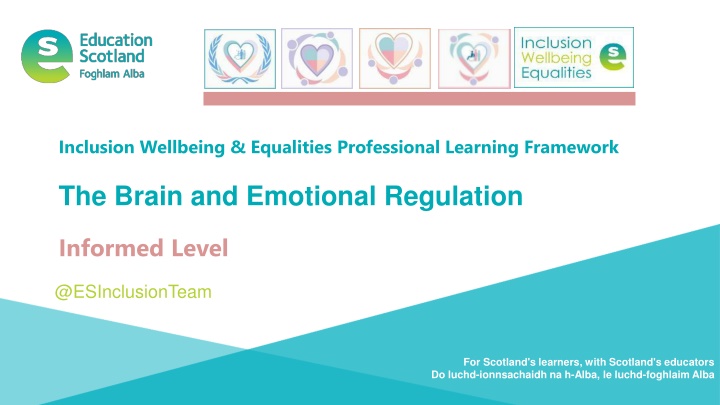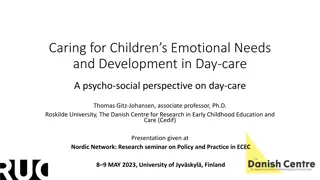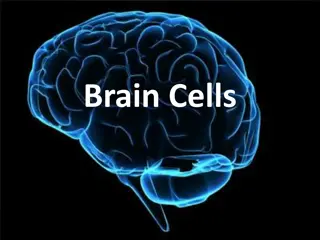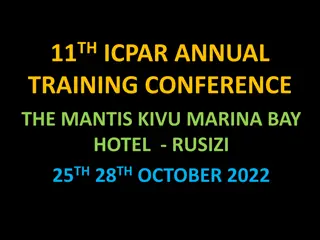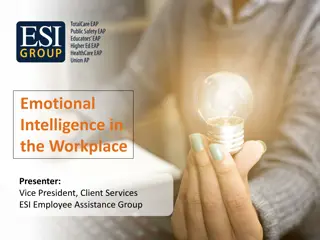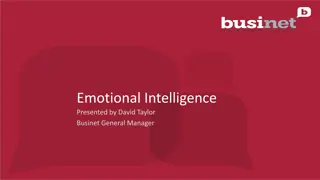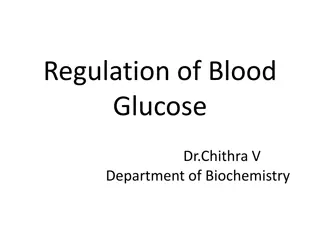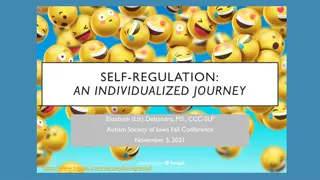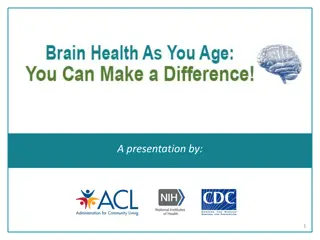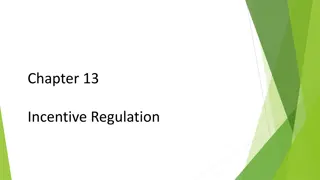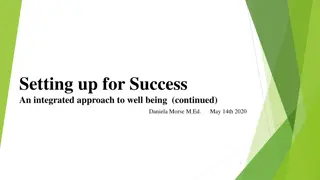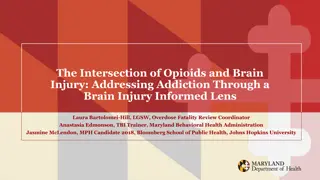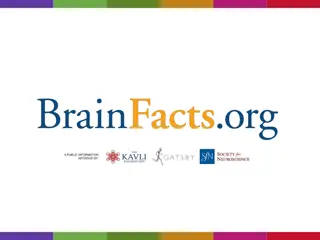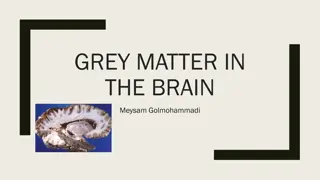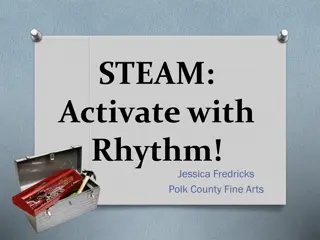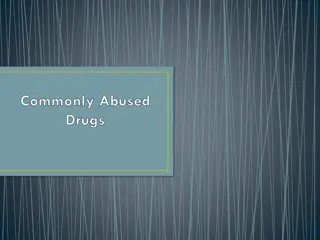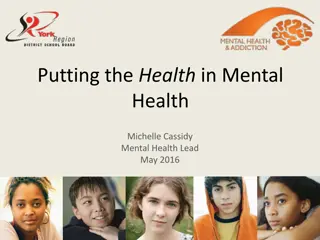Professional Learning Resource for Emotional Regulation and Brain Function
Explore the Inclusion, Wellbeing, and Equalities Professional Learning Framework tailored for Scotland's educators and learners. Dive into the interconnectivity between emotional regulation, brain function, and trauma challenges. Utilize the resource to enhance knowledge, understanding, and support for emotional intelligence and learning behavior. Facilitation notes included for group or individual learning.
Download Presentation

Please find below an Image/Link to download the presentation.
The content on the website is provided AS IS for your information and personal use only. It may not be sold, licensed, or shared on other websites without obtaining consent from the author.If you encounter any issues during the download, it is possible that the publisher has removed the file from their server.
You are allowed to download the files provided on this website for personal or commercial use, subject to the condition that they are used lawfully. All files are the property of their respective owners.
The content on the website is provided AS IS for your information and personal use only. It may not be sold, licensed, or shared on other websites without obtaining consent from the author.
E N D
Presentation Transcript
Inclusion Wellbeing & Equalities Professional Learning Framework The Brain and Emotional Regulation Informed Level @ESInclusionTeam For Scotland's learners, with Scotland's educators Do luchd-ionnsachaidh na h-Alba, le luchd-foghlaim Alba For Scotland's learners, with Scotland's educators Do luchd-ionnsachaidh na h-Alba, le luchd-foghlaim Alba
Interconnectivity For Scotland's learners, with Scotland's educators Do luchd-ionnsachaidh na h-Alba, le luchd-foghlaim Alba
How to use this resource These slides can be used to facilitate professional learning in a group or whole-setting, or as a self-directed learning activity as an individual. Facilitation notes are included at the bottom of each slide. Please do not remove or change any of the slides included. Facilitators are welcome to add slides or activities relevant to your own setting, to support discussion and exploration of the topic. Facilitators will know their participants needs best. Anyone who works in an educational setting can be a facilitator and use these slides. For reflection or discussion activities, it is important to establish a safe space which encourages respect and honesty to ensure that everyone is able to participate. For Scotland's learners, with Scotland's educators Do luchd-ionnsachaidh na h-Alba, le luchd-foghlaim Alba
National Model for Professional Learning This professional learning resource will support you to deepen your knowledge and understanding. You will have the opportunity to consider how to take this learning forward on your own and with others. The National Model of Professional Learning (education.gov.scot) For Scotland's learners, with Scotland's educators Do luchd-ionnsachaidh na h-Alba, le luchd-foghlaim Alba
Welcome This session provides an opportunity to: To explore the different sections of the brain and their function To explore the brain and emotional regulation To consider emotional regulation, emotional intelligence, and learning, and behaviour To consider trauma, the brain, and challenges to emotional regulation For Scotland's learners, with Scotland's educators Do luchd-ionnsachaidh na h-Alba, le luchd-foghlaim Alba
Our Amazing Brain 3:07 mins Video by sentis.com.au If viewing as a PDF please click this link to watch the film https://youtu.be/5_vT_mnKomY For Scotland's learners, with Scotland's educators Do luchd-ionnsachaidh na h-Alba, le luchd-foghlaim Alba
Parts of the Brain and their Function Neocortex (Thinking) Newest, most advanced Rational thinking Higher level thinking Language, imagination, ideas Thinking Limbic System (Feeling) Emotions, feelings, dreams Habit control Memories Interaction with others Feeling Primitive Amygdala Oldest Survival brain Fight, Flight, Freeze Fear, Pleasure, anxiety, anger Reptilian Brain - Instinctive Basic body functions Unconscious For Scotland's learners, with Scotland's educators Do luchd-ionnsachaidh na h-Alba, le luchd-foghlaim Alba
The Hand Model of the Brain and Emotional Regulation 2:31 mins If viewing as a PDF please click this link to watch the film https://youtu.be/gm9CIJ74Oxw For Scotland's learners, with Scotland's educators Do luchd-ionnsachaidh na h-Alba, le luchd-foghlaim Alba
The brain, emotions, and our ability to engage in learning We can t learn when: the amygdala is activated we are in fight/flight mode we are distressed or dysregulated we are disconnected from our thinking brain 2:03 mins See the Modules: Regulation, Dysregulation, and Self- Regulation Regulate, Relate, Reason, and Restore If viewing as a PDF please click this link to watch the film https://youtu.be/xNY0AAUtH3g A distressed person finds it really hard to think! For Scotland's learners, with Scotland's educators Do luchd-ionnsachaidh na h-Alba, le luchd-foghlaim Alba
Emotional Regulation What is it, why we need to know about it, and how is it linked with how our brain works Emotional regulation is the ability to recognise, manage, and respond to our emotions When we don t know how to regulate our emotions, we can become emotionally overwhelmed, and this can impact the way we relate to ourselves, others, and the world in general Emotional regulation is an important tool for mental well-being and protects our relationships with others For Scotland's learners, with Scotland's educators Do luchd-ionnsachaidh na h-Alba, le luchd-foghlaim Alba
Emotional regulation, feelings, and behaviour When we ARE emotionally regulated we can: feel balanced and in control of our reactions When we ARE NOT emotionally regulated we may: feel off kilter and out of control manage stress feel stressed listen to others and are aware of their needs are unable to listen or think express our needs in constructive ways express our needs in destructive ways act appropriately in a range of situations act inappropriately stay calm during challenging situations lose our cool don t take things personally take things personally protect important connections/relationships damage relationships or connections Remember: Emotional regulation is a skill we can learn and is part of our emotional intelligence For Scotland's learners, with Scotland's educators Do luchd-ionnsachaidh na h-Alba, le luchd-foghlaim Alba
Emotional Intelligence Emotional regulation is a skill we can learn and is part of our emotional intelligence (EQ) EQ is our ability to learn about ourselves and use that knowledge to understand and relate to others Emotional intelligence (EQ) is essential for good mental health and healthy relationships It may be even more important than IQ because it is linked to our happiness Emotional Intelligence has 5 components: Improving any of these components can potentially increase our happiness!!! o Self-awareness o Self-regulation o Motivation o Empathy o Social Skills In the Scottish curriculum these should be taught through the Responsibility of All part of the Health and Wellbeing Curriculum or as part of a bespoke Social Emotional Learning Programme For Scotland's learners, with Scotland's educators Do luchd-ionnsachaidh na h-Alba, le luchd-foghlaim Alba
Challenges to our emotional regulation The way we deal with emotions may, in part, have to do with how we were brought up, particularly if we faced adverse experiences during our childhood or trauma. Developmentally, when an infant or child does not have their emotions responded to, validated, or explained by a caregiver, parts of the brain [limbic and cortex] don t learn to talk to each other, .. emotional information continues to be overwhelming as the child gets older and emotional dysregulation occurs (Kori Hennessy, Family Therapist) Emotional regulation isn t simple, will depend on our experiences, and how our brain has developed, and will therefore be different for everyone. For Scotland's learners, with Scotland's educators Do luchd-ionnsachaidh na h-Alba, le luchd-foghlaim Alba
Childhood Trauma and The Brain 5:10 mins If viewing as a PDF please click this link to watch the film https://youtu.be/xYBUY1kZpf8 For Scotland's learners, with Scotland's educators Do luchd-ionnsachaidh na h-Alba, le luchd-foghlaim Alba
Reflection From what you have learned so far, think about: How has this made you feel? What has this made you think about? What one action would you like to take forward? How can you link what you plan to do with others in your setting? How you will know that this learning has made a difference? For Scotland's learners, with Scotland's educators Do luchd-ionnsachaidh na h-Alba, le luchd-foghlaim Alba
Resources and Information to help For Scotland's learners, with Scotland's educators Do luchd-ionnsachaidh na h-Alba, le luchd-foghlaim Alba
We value your feedback From now until March 2024 we will be taking feedback on these resources so that we can make changes in advance of a formal launch of the Professional Learning Framework in June 2024 Your feedback could help us improve this resource Please complete this short form, using the link or QR code, to let us know what you thought of it and any suggestions you have on how it could be improved LINK: https://forms.office.com/e/b5PCpJJJ3P For Scotland's learners, with Scotland's educators Do luchd-ionnsachaidh na h-Alba, le luchd-foghlaim Alba
Education Scotland Denholm House Almondvale Business Park Almondvale Way Livingston EH54 6GA T +44 (0)131 244 5000 E enquiries@educationscotland.gsi.gov.uk For Scotland's learners, with Scotland's educators Do luchd-ionnsachaidh na h-Alba, le luchd-foghlaim Alba For Scotland's learners, with Scotland's educators Do luchd-ionnsachaidh na h-Alba, le luchd-foghlaim Alba
